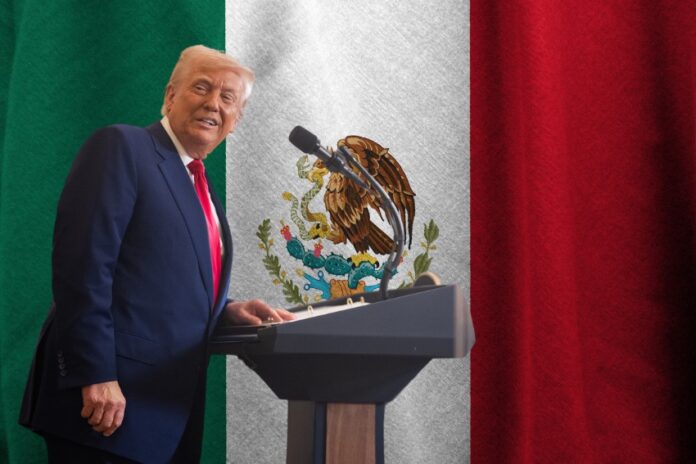Mexico has been named a priority offender on a U.S. government watch list of nations that don’t do enough to protect intellectual property rights.
The Office of the United States Trade Representative (USTR) announced Tuesday that it regards its southern neighbor as among the worst offenders of intellectual property (IP) rights, moving Mexico from its Watch List to its Priority Watch List.
Today, the Office of the United States Trade Representative released its 2025 Special 301 Report on the adequacy and effectiveness of U.S. trading partners’ protection and enforcement of intellectual property rights.https://t.co/wYD40gTMzd
— United States Trade Representative (@USTradeRep) April 29, 2025
There are only seven other countries on the Priority Watch List: China, Chile, Argentina, India, Indonesia, Russia and Venezuela. Eighteen countries are on the Watch List.
The USTR prepares these watch lists annually from analyses of more than 100 trading partners, scrutinizing deficiencies and violations of IP rights.
In its Special 301 report on IP protection and enforcement, the USTR cited “long-standing and significant IP concerns that have not been resolved, many of which relate to Mexico’s implementation of the United States-Mexico-Canada Agreement (USMCA).”
The USTR downgraded Mexico for its failure to effectively investigate and prosecute trademark counterfeiting and copyright piracy protection of pharmaceutical-related IP, pre-established damages for copyright infringement and trademark counterfeiting, as well as plant variety protection.
“Our trading partners must address the concerns identified in the Special 301 Report and stop those stealing the intellectual property of hard-working businesses and individuals,” said U.S. Trade Representative Jamieson Greer upon releasing the report.
Countries deemed to be supporting an unfair IP playing field could be subject to trade enforcement action.
Additionally, by being on the Priority Watch List, Mexico is risking a poor report card ahead of next year’s review of the USMCA.
Mexico is eager for a positive review of the trade agreement as it sends over three-quarters of its exports to the U.S.
It won’t be easy.
Mexico had been on the USTR Watch List for several years, Reuters reported. In July 2024, the Wilson Center, a Washington, D.C.-based think tank, wrote that “Mexico isn’t living up to some of its obligations under USMCA, notably on intellectual property rights.”
While Sheinbaum’s predecessor did pursue “significant legislative reforms,” shortcomings — including the lack of implementing regulations — “create uncertainty for the creative and innovative sectors looking to protect and enforce IP in Mexico,” the Wilson Center observed.
When the USMCA went into effect on July 1, 2020, Mexico was required to implement an effective patent enforcement system to ensure that patent-infringing generic medicines were not favored with marketing authorizations prior to the expiration of patents.
Nearly five years later, Mexico has neither issued implementing regulations nor complied with its patent enforcement commitments.
Mexico only this year came into compliance with USMCA obligations on “patent term restoration” (PTR) and “regulatory data protection” (RDP).
With reports from Reuters and Wilson Center
